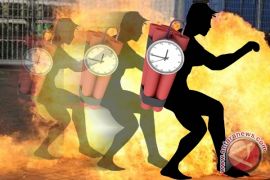Scientists who examined the death certificates of Japanese men who died between 1980 and 2005 found managers and professionals had a 1.7 times higher risk of dying before the age of 60 than those in clerical, sales, services, security, agriculture, production and transport jobs.
Led by Koji Wada at the Kitasato University School of Medicine, they found that deaths from cancer, stroke and heart disease among managers and professionals increased after 2000, while those rates for other workers declined.
"Anyone can go to hospital with universal healthcare coverage in Japan, so why would managers and professionals have higher mortality rates? Because of delays in going to hospital," junior associate professor Wada said by telephone.
"They don`t have much time to go to hospital even when they get symptoms. So they have severe cancer, even with metastasis, and they die even with treatment."
The researchers, who published their findings in the British Medical Journal (BMJ), said the mortality patterns may be linked to years of economic stagnation in Japan following Asia`s economic crisis in the late 1990s.
Suicide rates increased among managers and professionals after 2000, while suicide figures for those in production, sales and clerical work held steady.
"Managers and professionals have higher stress and poor lifestyles, they don`t have time for exercise, sleeping ... Even with higher wages, they have unhealthy lifestyles," Wada said.
(Reporting by Tan Ee Lyn; Editing by Daniel Magnowski)
(Uu.G003/B002)
Reporter: By Tan Ee Lyn
Editor: Priyambodo RH
Copyright © ANTARA 2012









